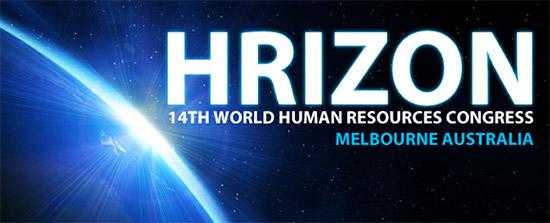
When you spend time with Steve Wozniak, Dave Ulrich, Li Cunxin, Daniel Pink and David Thodey (but to name a few presenters), you cannot help but feel inspired and motivated to change the world. That was the energy I experienced at the recent 14th World Human Resources Congress (HRIZON) hosted in Melbourne. With such an extensive agenda and entertainment by Australia’s best talent, this was truly an event not to be missed. The content was rich and compelling, provoking self reflection and a strong call to action. The themes across the content were clear and consistent. HR is changing! We are in a new era where we need to be alert and engaged in the changing world, economic and technological climate to stay in the game.
Some of the key themes raised at the HRIZON 2012 conference include:
Innovation
Innovation is more important than ever with companies dedicating time and resources to ensure innovation and creativity are harvested. The pace of innovation is frantic and organisations face constant pressure to stay ahead of the pack. The key to successful innovation is to anticipate people’s needs rather than meet their current demands. In that way you create a new ‘need and market’. For example, who knew 5 years ago that everyone would ‘need’ an Ipad? The other key take home for me in relation to innovation was to consider that many of us aim for and practice ‘World’s best practice’. But the ‘world’s best practice’ has been done before. We need to be striving for the new standard – what is the next step?Human Resources has had a seat at the executive table for some time now but we need to step up to the responsibility this seat holds. That is, we need to develop strong Leadership! The executive team are ultimately responsible for HR and we have an obligation to help develop strong and inspirational leadership skills. We also need to break out of old school practices such as annual performance reviews. We live in a world that provides instant feedback. For example, if you want to talk to someone anywhere in the world, you just call, Skype or text them. Similarly, if you want to know or learn anything, just Google it! Yet we continue to provide performance feedback once a year! HR needs to ‘get with the times’ before we risk losing all relevance and credibility in a quickly evolving landscape.
The changing nature of work
The changing nature of work is bringing new challenges to HR quicker than we can respond. The workforce is seeing increased mobility, flexible working conditions and higher employee expectations. There is a clear call to focus on retaining and developing talent, culture and leadership throughout this transition and ensuring HR practices and resources are prioritised accordingly. The other key focus which has been coming for a while now, is ensuring your organisation remains client centred. Successful organisations will prioritise feedback and direction from the ‘outside in’. That is, let your market and clients need drive the direction of your business.Technology
Technology as always continues to dominate all discussions. Presenters discussed the journey we have taken from the initial Information Age when the internet first surfaced and was used to access data, through to the Social Age we are in now where social media is rife and beyond to the Collaborative Age where technology will be used to facilitate needs and relationships offline (Eg: Taskrabbit.com). The key factors that dominate this new age were reportedly Collaboration, Creativity, Community, and Conversation. These are core areas for us all to consider in our every day practices.Despite these other important themes, clearly Talent Management is the core focus of HR. In this dynamically changing climate, talent management again prioritises individual motivation. In terms of motivation, a sense of fairness in relation to pay is critical for money to be removed as a de-motivator but it itself is not a strong motivator. Rather strong motivation for employees has been shown to come from:
- Autonomy: the only real way to get engagement requires the ability to self direct
- Mastery: ‘we like to get better at stuff’ making progress in meaningful work leads to satisfaction
- Purpose: focus on WHY and assume HOW is covered. Explain the purpose in work and how it contributes rather than what to do.

